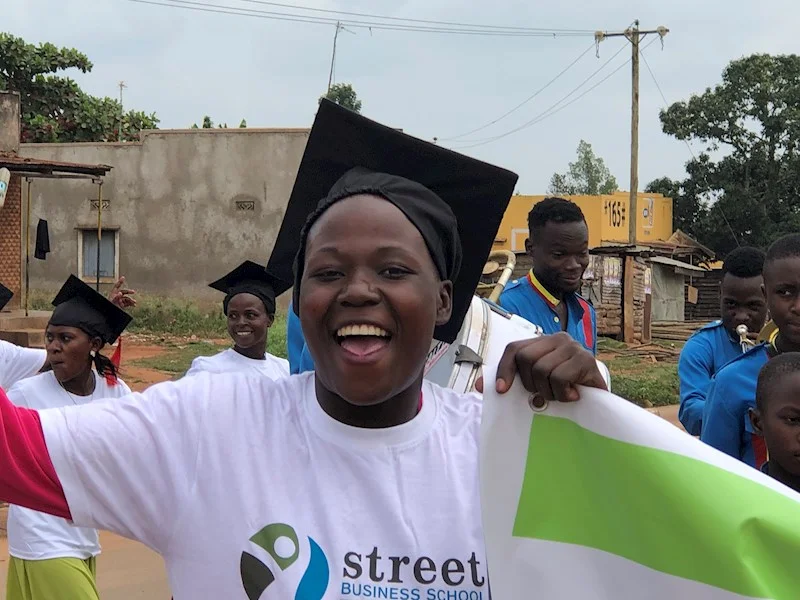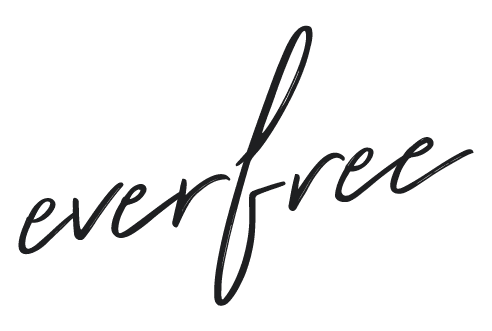
SBS CEO Devin Hibbard Sits Down with EverFree CEO Jeremy Floyd
EverFree was formed through the merger of two tireless anti-human trafficking organizations: Willow International out of Uganda and 10,000 Windows in the Philippines. Both groups are working to stamp out modern slavery at the root and create pathways for survivors to regain agency over their lives. Now together as EverFree, they’re looking to expand their reach by establishing the first anti-trafficking shelter in Belize, set to open this spring.
We sat down with Jeremy Floyd, co-founder and CEO of EverFree and former CEO of 10,000 Windows, to learn more about how the newly minted organization is working to accelerate freedom for survivors and find out what’s next in 2022 and beyond.
Your organization was founded on the premise that too often “survivors are not asked what they need to be free and the root causes of trafficking are not addressed.” Can you tell us about some of these root causes and what survivors need most?
Jeremy Floyd: To speak specifically to 10,000 Windows’ history: We began in the Philippines as a pilot project of a larger organization, International Justice Mission, which at the time was tasked with removing trafficking victims from a place of exploitation. What they were seeing as they were removing people from these situations is — even if they had some support and care, say in an after-care shelter — many were being re-trafficked, because the vulnerability that led them to being trafficked in the first place was not addressed.
Core to removing those vulnerabilities is the ability to have a sustainable income. In the Philippines in particular, the vast majority of the survivors we work with were trafficked while in the process of looking for employment. They were desperate, took chances that were risky, and it didn’t work out for them, but it was that economic vulnerability that drove them to make those risky decisions.
So we were very unsatisfied with the lack of sustainable freedom that was available for survivors, and we developed programs to directly address that in the Philippines. In Uganda, Willow generally works with a slightly younger population, but they also realize that unless they help families with economic stability, they are going to struggle to see trafficked children reintegrate well into their communities.
Let’s speak a bit more about this economic empowerment element: How does financial independence fit in when it comes to accelerating freedom for survivors?
JF: The root causes that lead to trafficking are complex. Beyond economic vulnerability, there are many other factors — for example, if a person has been a victim of domestic abuse, if there is drug use in the home, or things of that nature certainly compound the factor. But we feel that economic stability really does reduce vulnerability.
When you ask survivors what they want, they won’t say a shelter or counseling — they’ll tell you they want a job so they can support themselves and their families, and they want to see the traffickers held accountable so they can’t harm anyone else.
Can you provide some examples of how Everfree works with survivors, and with communities affected by trafficking, to build economic stability?
JF: Our unique approach has been to first focus on the formal sector in an economy. This is somewhat in response to how the anti-trafficking sector has attempted to help survivors find economic freedom in the past. Historically, social enterprises were started to employ survivors. Those businesses, while serving an important role, oftentimes weren’t profitable, were highly subsidized and were dependent on charity. Therefore they were not sustainable, and they could only employ a few survivors.
We were trying to build something, along with survivors, that could help them for the rest of their lives. So we did some extensive research with businesses in the communities in which we work to see what they were looking for when they’re hiring employees, especially for entry-level positions. We repeat this research every other year, and we continue to find that employers are looking for soft skills, not hard skills. They can teach somebody the skills needed to be successful on the job, but they need people who are dependable, who manage their time well, who can handle conflict in the workplace and can communicate — and oftentimes it’s those soft skills that survivors struggle with most.
We wanted to help our clients stand out in the marketplace by interviewing and presenting well, and once they got the job, making sure they were able to sustain it. We’ve helped hundreds in the Philippines find sustainable employment, and we have systems in place to ensure these employers are safe, pay living wages, and provide benefits and workplace protections. We’ve also found that when survivors learn how to apply for a job and to advocate for themselves, they can use those skills to find other positions in the future. So rather than helping just a few, we’ve helped hundreds and hundreds over the last 10 years to be able to find work and sustain themselves financially.
EverFree also partners with us at Street Business School to provide entrepreneurship training that enables survivors of human trafficking to launch and run their own small businesses. Could you tell us more about the effectiveness of that?
JF: The Philippines has higher standards, I would say, for employment in the formal sector. It’s very hard to get a job if you don’t have a high-school education, for example. It’s very hard to get a job if you’re older — even those in their late 20s or early 30s may face age discrimination when applying for entry-level jobs. And then a number of folks are discriminated against for other reasons: gender, sexuality, even things like visible tattoos.
Our partnership with SBS has been instrumental in helping us to find income solutions for these folks. We’re just a year into it in the Philippines, but we’re already seeing the benefits. Willow International also works with SBS in Uganda, a place where opportunities to work in the formal sector are few and far between, and the model has been very helpful for survivors and their families there.
And how do you feel entrepreneurial skills fit in when it comes to building financial independence for survivors?
JF: Formal work is not possible in all places where trafficking is prevalent. Folks have to be self-reliant and self-sufficient, and the SBS entrepreneurship training model is critical in those places. Otherwise, we’ll be stuck in a cycle of dependency where we create jobs for businesses that aren’t sustainable or profitable, and it’s almost out of charity and pity that we provide those jobs. The better approach is to give people a skillset where they can provide for themselves.
Further, there are a broad set of benefits associated with developing the mental and emotional traits that come from learning to be an entrepreneur. People learn to tackle and solve their own problems, and that’s a skill that builds resilience, elevates a person’s sense of wellbeing, and ultimately leaves them better able to protect themselves against those that would exploit them in the future.
What’s next for EverFree?
JF: Street Business School is expanding through social franchising, which means their team teaches other NGOs and community groups how to implement SBS entrepreneurship training in the communities they serve. I’m a big fan of the social franchise model, and we’re looking to do something similar.
There just isn’t enough progress in the sector — we’re not helping enough people. We want to accelerate that, so we’re developing — and in the later part of this year will begin implementing — something of a social franchise model of our own. I’m actually in the process of hammering out what the strategic plan looks like over the next four years as we essentially box up our model and begin to deploy it to grassroots, frontline organizations around the world — again, with the aim to not just reach a few thousand people, but to reach millions over time.
